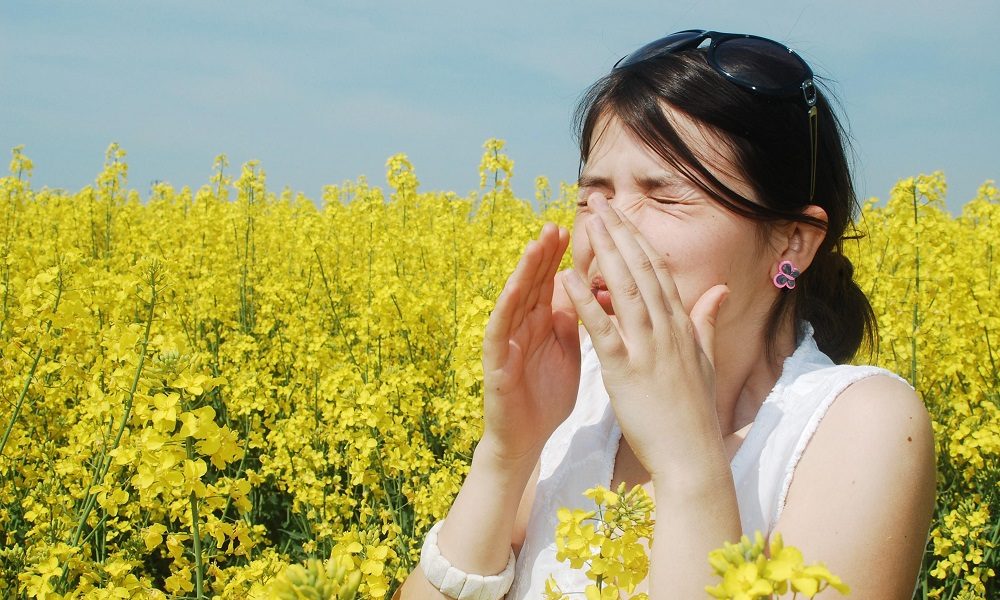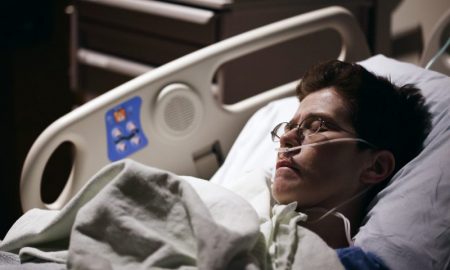
Treatment for Hay Fever

Hay fever is a common allergic condition that affects millions of people worldwide. It is caused by an allergic reaction to pollen and other airborne allergens, which can lead to a range of symptoms, including sneezing, runny or stuffy nose, itchy or watery eyes, itchy throat, coughing, fatigue, and headache.
While there is no cure for hay fever, several treatments are available to help manage the symptoms and improve quality of life, such as:

NPS/ iStock | Prevention is a big part of hay fever treatment
Antihistamines
Antihistamines are medications that block the effects of histamine, a chemical released by the body in response to allergens. Histamine is responsible for many of hay fever symptoms, including itching, sneezing, and runny nose. By blocking histamine, antihistamines can relieve these symptoms and help improve quality of life.
There are two types of antihistamines: first-generation and second-generation. First-generation antihistamines, such as diphenhydramine, can cause drowsiness and are generally not recommended for daytime use. Second-generation antihistamines, such as loratadine and cetirizine, are less likely to cause drowsiness and are generally preferred for daytime use.
Decongestants
Decongestants are medications that narrow the nose’s blood vessels and reduce swelling and congestion. They can be taken orally or as a nasal spray. Oral decongestants, such as pseudoephedrine, can cause side effects such as increased heart rate and blood pressure and are generally not recommended for people with certain medical conditions, such as high blood pressure.
Nasal decongestants, such as oxymetazoline, should be used for short periods, as they can cause rebound congestion if used for more than a few days.

Ryan O’Hare/ Shutterstock | Hay fever affects 20 – 25% of people across America and Western Europe
Nasal Corticosteroids
Nasal corticosteroids are medications that reduce inflammation in the nasal passages, which can help relieve congestion, itching, and sneezing. They are available as nasal sprays and are generally safe and effective for long-term use. Some common nasal corticosteroids include fluticasone and budesonide.
Immunotherapy
Immunotherapy, also known as allergy shots, is a treatment that involves injecting small amounts of allergens into the body over time, which can help the body build up a tolerance to the allergens and reduce the symptoms of hay fever. Immunotherapy is typically recommended for people with severe hay fever or those who do not respond well to other treatments.

Freepik/ Wayhomestudio | The condition can be seasonal or year-round, depending on the allergen triggers
Allergy Avoidance
Avoiding exposure to allergens, such as pollen and dust, can help reduce hay fever symptoms. This can be done by staying indoors during high pollen count days, using air conditioning, and wearing a mask when outdoors.
Combination Therapy
Combination therapy involves using two or more medications to treat hay fever. For example, a nasal corticosteroid and an antihistamine may relieve congestion, itching, and sneezing. Combination therapy can be more effective than a single medication alone and may be recommended for people with severe hay fever.
More in Life Hacks
-
`
5 Realistic Ways to Stay Mentally Fit in 2025
Mental health is not just about avoiding stress. It is about building a mind that can handle life’s ups and downs....
February 13, 2025 -
`
Carrie Underwood’s Husband & Kids: Celebrity Lives Revealed
Carrie Underwood’s husband, Mike Fisher, has been by her side for nearly 15 years. The country music star, 41, and the...
February 7, 2025 -
`
Struggling With Panic Attack? Try This Easy Hack to Stop It
Panic attacks are overwhelming, intense, and can hit you out of nowhere. If you have ever experienced one, you know it...
February 1, 2025 -
`
Why Pamela Anderson Stopped Wearing Makeup
Pamela Anderson, the iconic blond beauty of “Baywatch” fame, has made headlines once again. But this time, it is not about...
January 26, 2025 -
`
Top 6 Easy-To-Start Side Hustles You Must Consider in 2025
Voiceover Work Do you think you have a great voice? Put it to work! Voiceover gigs are among the most flexible...
January 16, 2025 -
`
Shadow Work Explained: What It Is and Why It’s Life-Changing
Shadow work is a transformative practice that delves into the hidden parts of ourselves—those traits, emotions, and memories buried deep in...
January 2, 2025 -
`
Sarah Paulson Wants People to Take Kim Kardashian “Seriously” as an Actress
Sarah Paulson, one of Hollywood’s most celebrated actresses, has made headlines for her unwavering support of Kim Kardashian’s burgeoning acting career....
December 24, 2024 -
`
Can Foreigners Start a Business in the Philippines?
The Philippines is a vibrant economic hub in Southeast Asia, offering lucrative opportunities for entrepreneurs. But can foreigners open up a...
December 19, 2024 -
`
6 Practical Tips to Manage Your Temper as a Parent
Managing anger while disciplining children can be one of the most difficult tasks for parents. Emotions can run high when kids...
December 12, 2024















You must be logged in to post a comment Login